.Gov backlinks are powerful, but also notoriously hard to get.
Chasing them blindly will get you nowhere, you need a solid strategy.
In this guide, I’ll show you the real, practical methods that actually work to secure these authoritative links.
How I Earn .Gov Backlinks
1. Identify Relevant Gov Sites and Opportunities
Here are a few tools and tricks to help you find the right opportunities for .Gov backlinks.
↳ Google Advanced Search: Use search operators like site:.gov + keyword
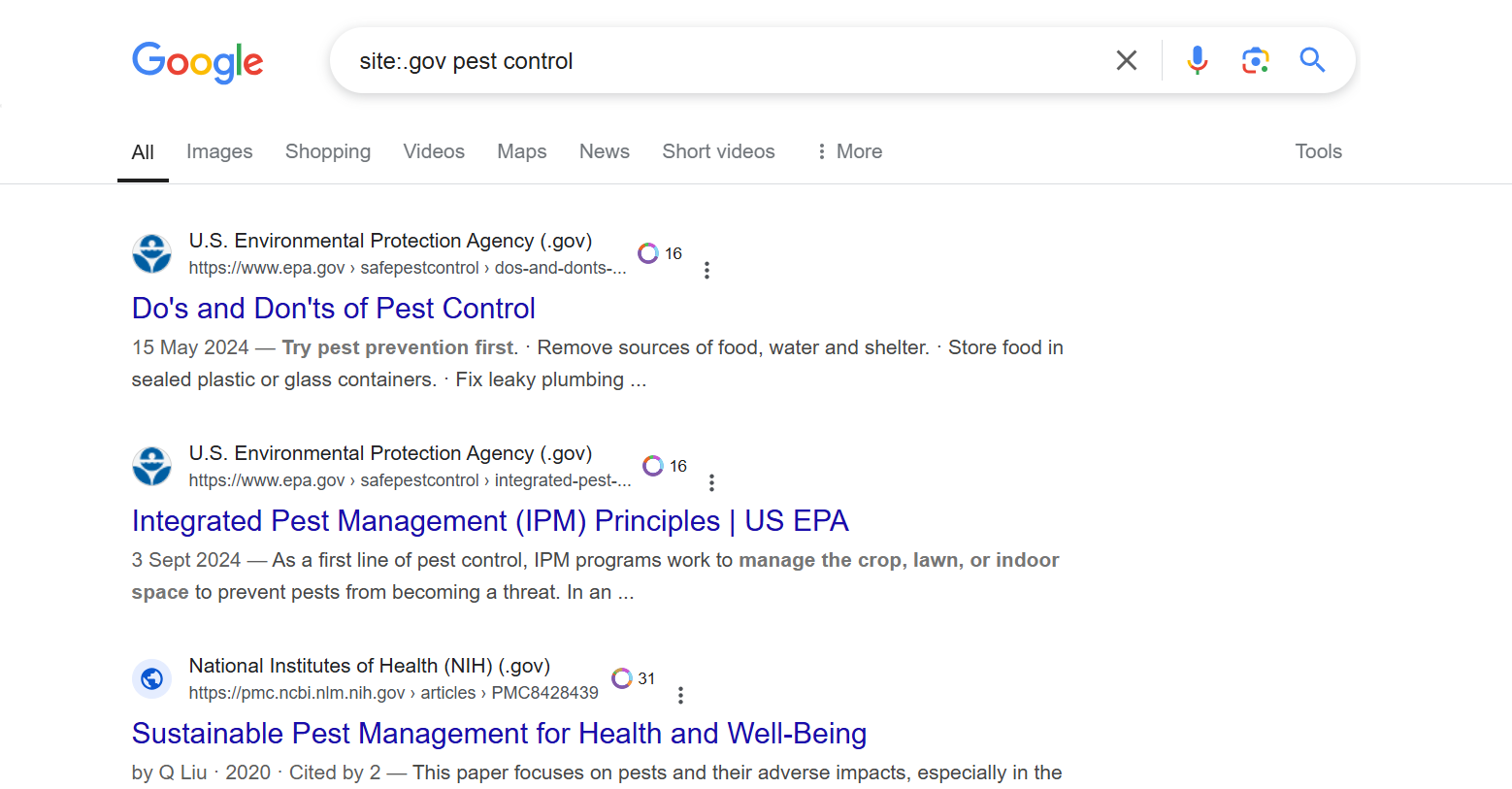
↳ Competitor Analysis: Check backlinks of competitors using Semrush to see which gov sites link to them.
↳ Local Government Sites: Check out cities, counties, or state government sites that list local businesses or resources to find backlink opportunities.
2. Tap Into Resource Pages
Government websites frequently maintain resource pages for their communities. Depending on your niche, you can find linking opportunities here.
↳ How to Find Resource Pages:
Just search queries like:
site:.gov inurl:resources
site:.gov “helpful links”
site:.gov inurl:links
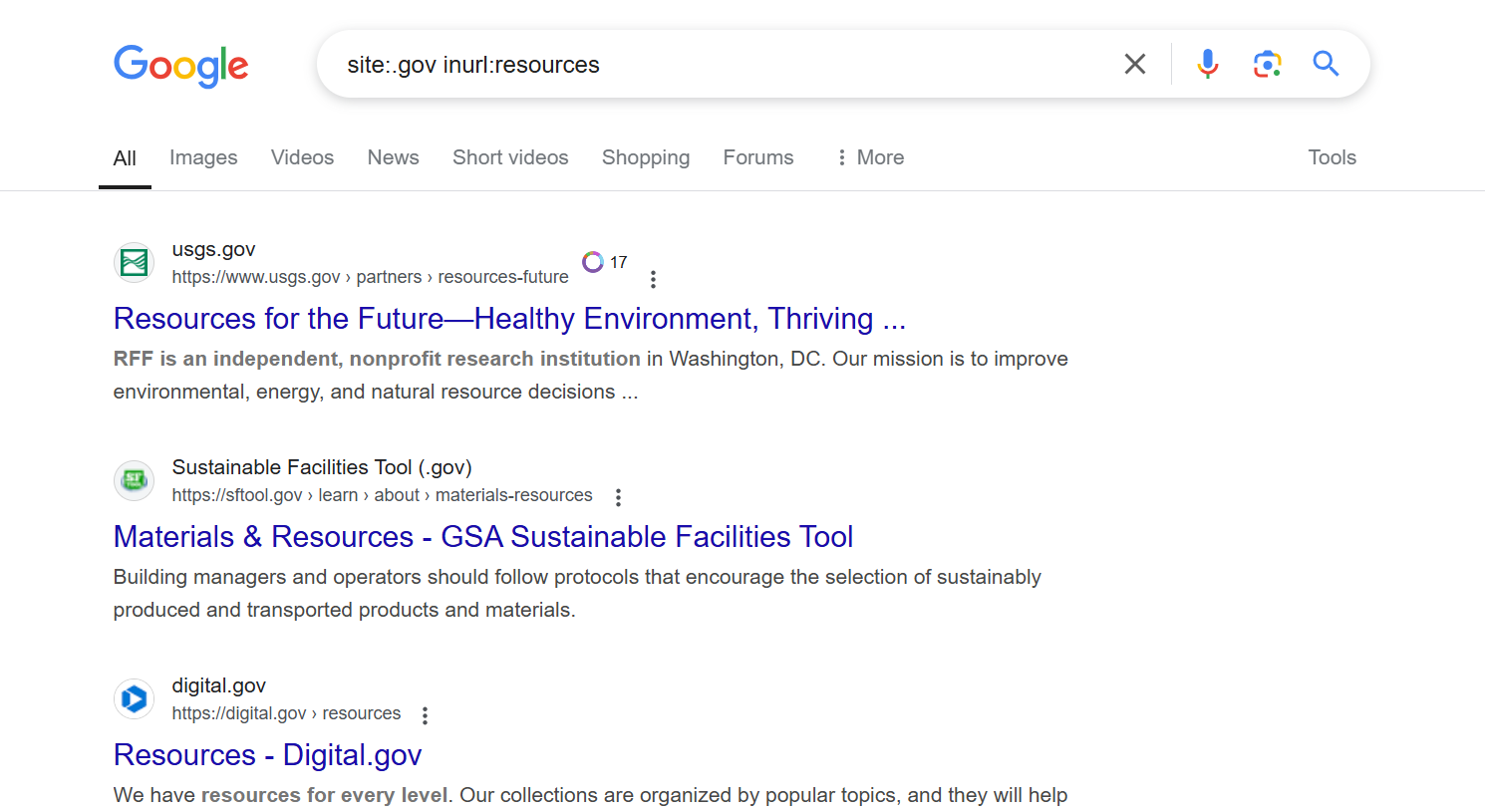
Open the results that make sense to you and see how they are linking to other sites– and whether or not there is a linking opportunity for a site like yours.
↳ How to Score a Link from Resource Pages:
So, you’ve found a few pages that you think could provide you a backlink (and at the same time benefit from your content/page).
Before you make a move, just be super sure that your content genuinely adds value to their page. It could be a guide, some tool, a case study, statistics, etc.)
Next, you need to find the contact details to send your pitch. On most pages, you’ll find it at the bottom like this.
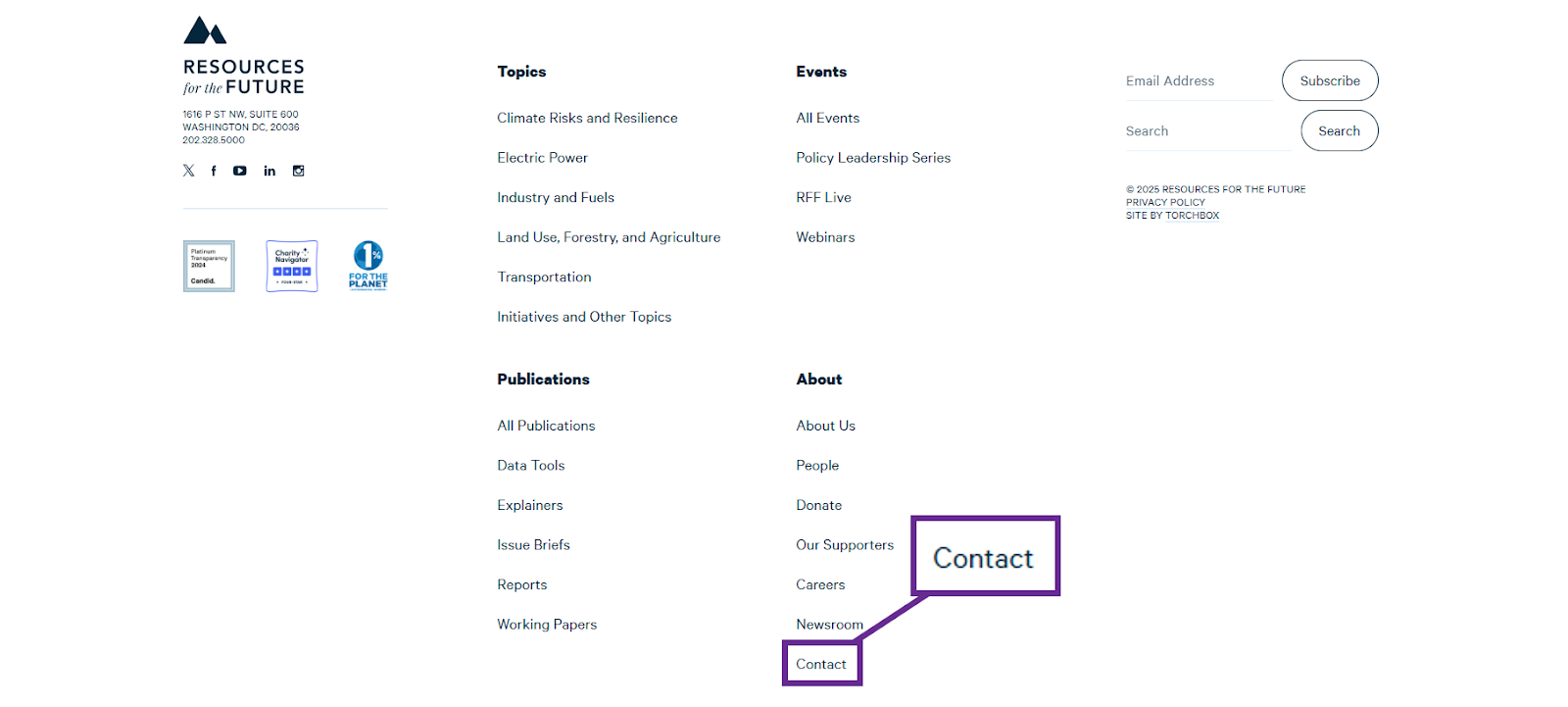
↳ Example Email Pitch:
Hi [Name], I noticed your resource page ([link]) provides valuable information on pest management. I recently created an in-depth guide on eco-friendly pest control solutions that align with your initiative. It could be a great additional resource for your visitors. Here’s the link: [Your URL]. Thanks for considering this!
I also prefer to find their social handles (most .gov websites have it) so I can reach out to them more personally.
In fact, I’d generally email them a slightly formal pitch with all the necessary details, and then ping them on LinkedIn or X with a personalized, quick message, while also sometimes referring to the email I have sent.
↳ Example Social DM:
Hey, I love what you’re doing [add necessary information about their content/initiative and the link] and would love to be a part of it. I have a resource you can use [link to your content]. Thanks!
3. Participate in Government Initiatives or Campaigns
Many .gov sites run public campaigns or events. If you support these events, it can get recognition and some juicy backlinks. (Plus, it’s an amazing way to build a community.)
To find these opportunities, regularly check city/state websites for relevant events or initiatives.
On Google, search something like:
site:.gov “become a sponsor”
or
site:.gov events sponsors
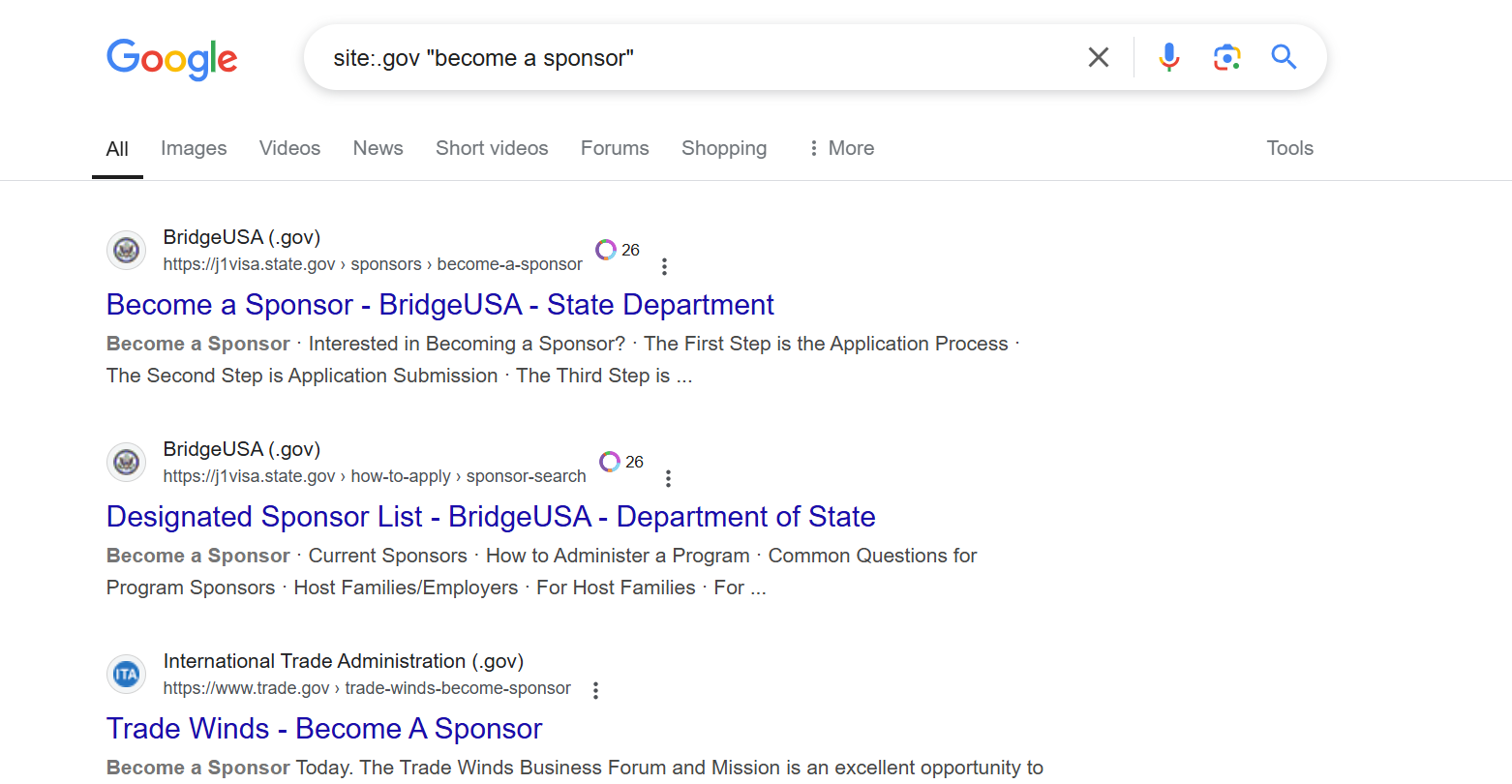
Check out pages that are relevant to your niche or where you can see a backlink opportunity.
Now, to secure those backlinks, you’ll have to sponsor or actively participate in these events and initiatives. You could provide testimonials, volunteering services, or even financial support.
This could potentially earn you a backlink because sponsors or participants often get listed on official event pages.
But before you jump into action, do some research to make sure that the site mentions and gives out links to sponsors or participants.
4. Provide Local Community Services or Discounts
If you’re targeting local government websites, it can help to offer community benefits to get backlinks and mentions.
For example, you could give out discounts for government employees, military personnel, or educators.
Or, you could arrange free resources or educational sessions for community well-being.
To promote yourself in such a manner and earn a backlink, contact relevant city/state department offices. It could be education or healthcare, etc.
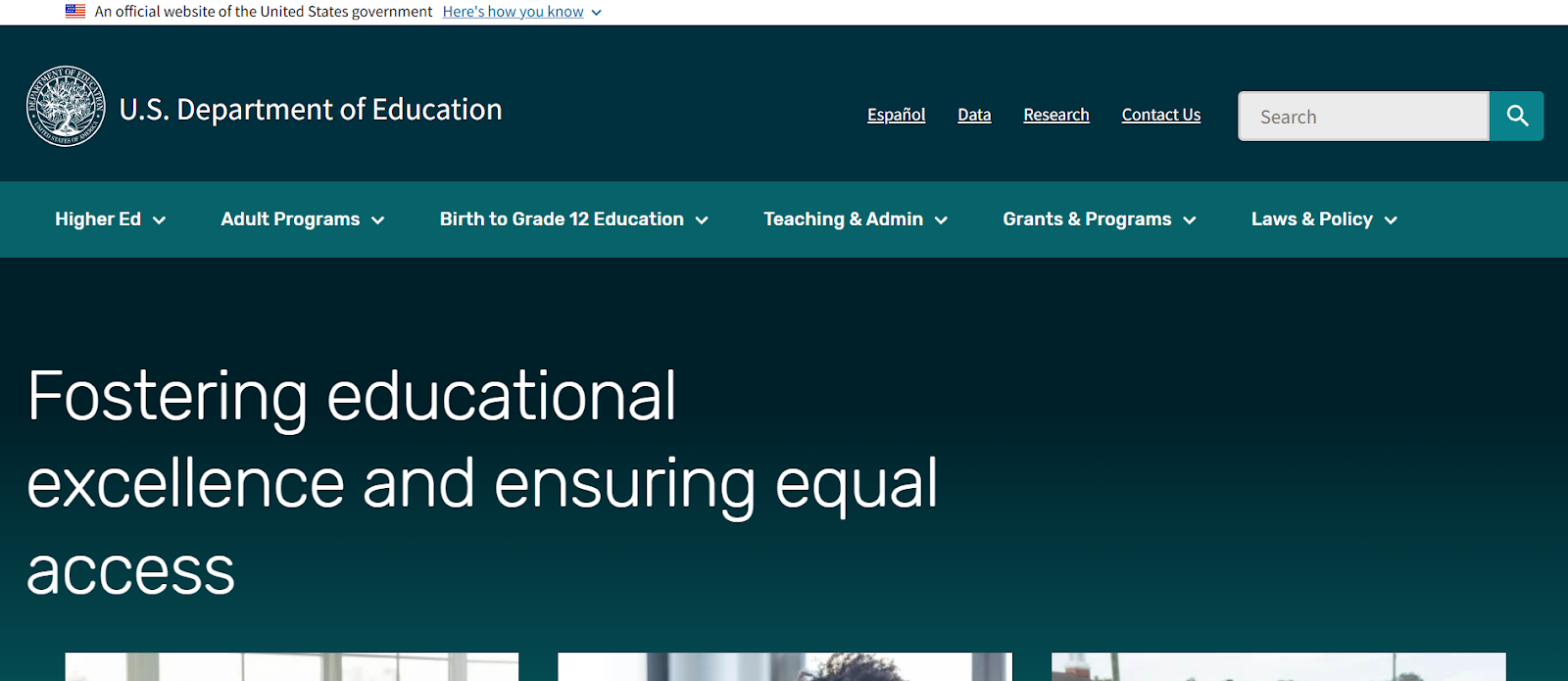
Tell them about your special services in detail (like a formal proposal document or something) and request them to include it on their website as a community benefit.
Again, other than getting your government website backlinks, it helps you big time in building a community.
If you’re already running initiatives or services that can help the community, just find relevant government bodies and their websites, and pitch it to them.
5. Create and Share Data, Research, or Reports
Gov sites prefer linking to credible, data-driven content. You can give them just that and also earn a backlink in the process.
To create content that .gov sites would want to link to, conduct original research relevant to your community.
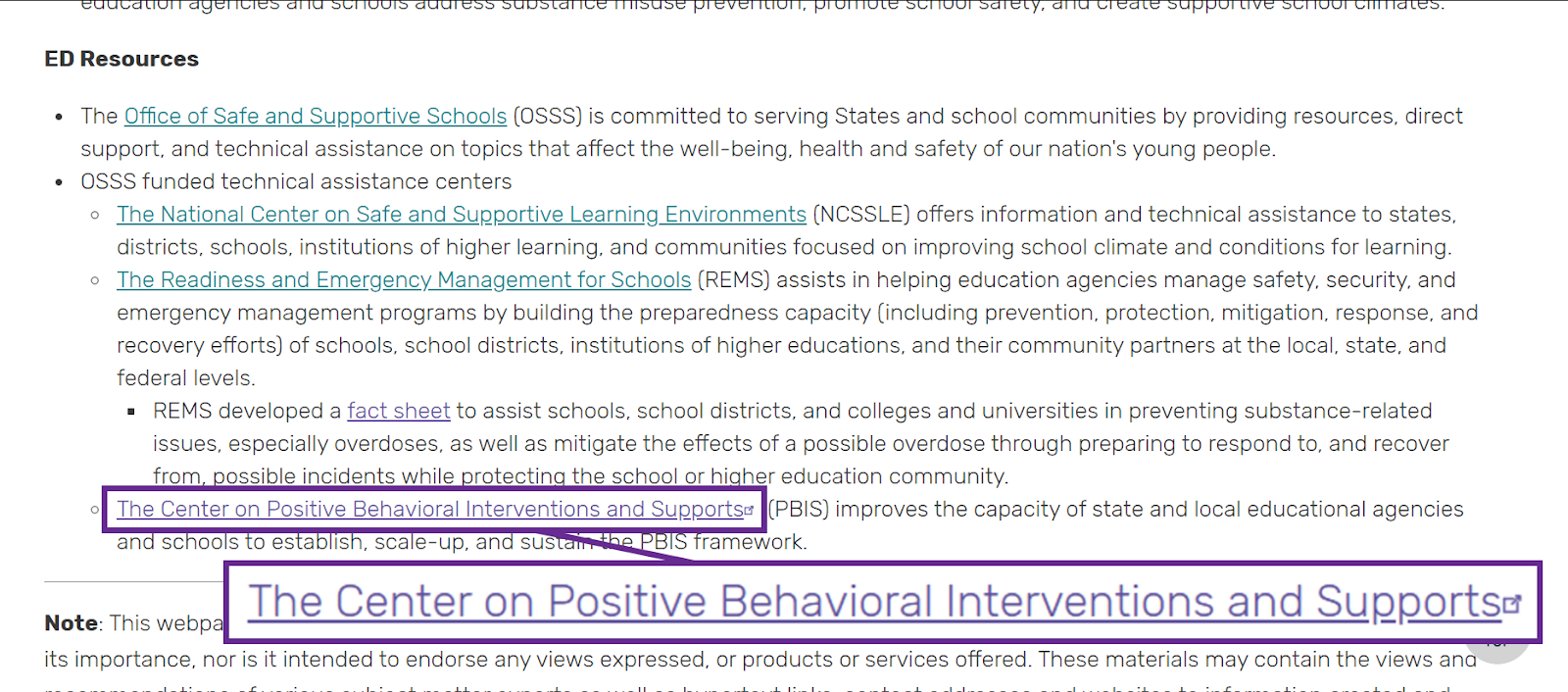
Write very well researched content. If possible, do an original survey. It’ll make your resource more valuable. Also create infographics or detailed reports that highlight valuable statistics (and which can add value to your target .gov page data).
Then, directly reach out to relevant government departments (public health, education, etc.) and show them clearly how your research benefits their community or aligns with their agenda.
6. Build Relationships With Gov Departments
It might sound very easy to reach out to government departments and pitch them your resources but that alone won’t get you mentioned. To get your content noticed, you need to build personal relationships and make your presence felt in relevant communities.
For example, you could attend government-organized events, workshops, or public meetings relevant to your community. Also, network proactively with officials. Introduce your business and value proposition.
Regularly engage and stay updated on their ongoing projects to spot linking opportunities.
7. Get Listed in Government Directories
Many local and state gov sites maintain directories for local businesses.
To find such a listing for your business area, try these advance queries:
site:.gov business directory
or
site:.gov local businesses
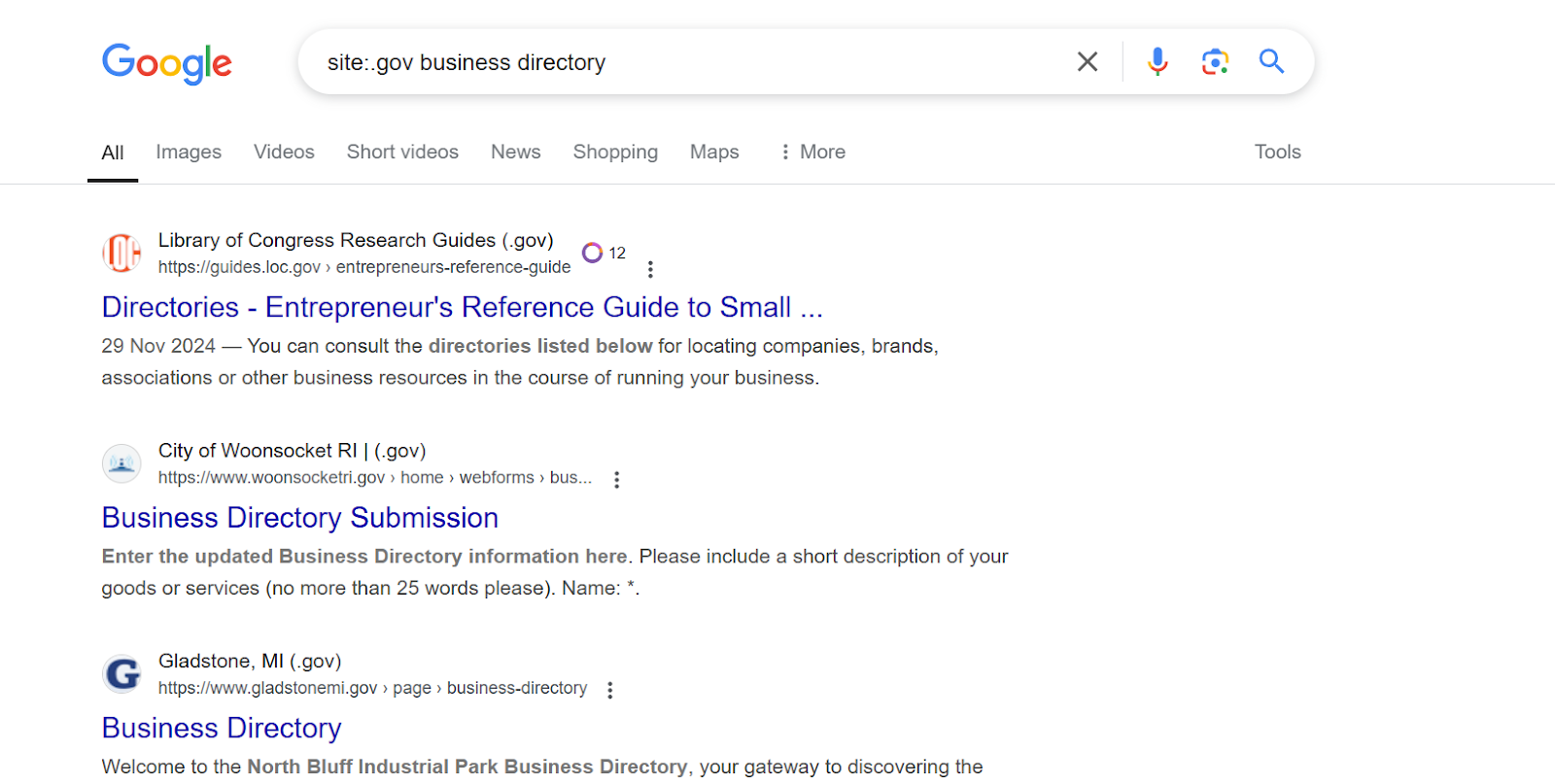
When you find a relevant .gov page, carefully check their guidelines and requirements for listing. If your business falls into that criteria, submit complete and accurate business details.
Should You Chase .Gov Backlinks?
It depends on your business type and goals. Acquiring .gov backlinks can be super hard and it may not even be feasible or beneficial for your business. Here’s how to figure out whether you should even try to get .gov backlinks or focus on other link-building strategies instead:
1. Consider Your Industry and Niche
If your business belongs to a sector that aligns with public services or community interests (like healthcare, education, environmental services, or public safety), trying to get .gov backlinks might just work for you.
For example, if you’re an eco-friendly products business, it makes sense to collaborate with environmental agencies on sustainability initiatives.
On the other hand, if your niche barely overlaps with such government activities or initiatives, it’s best you focus on different link-building methods.
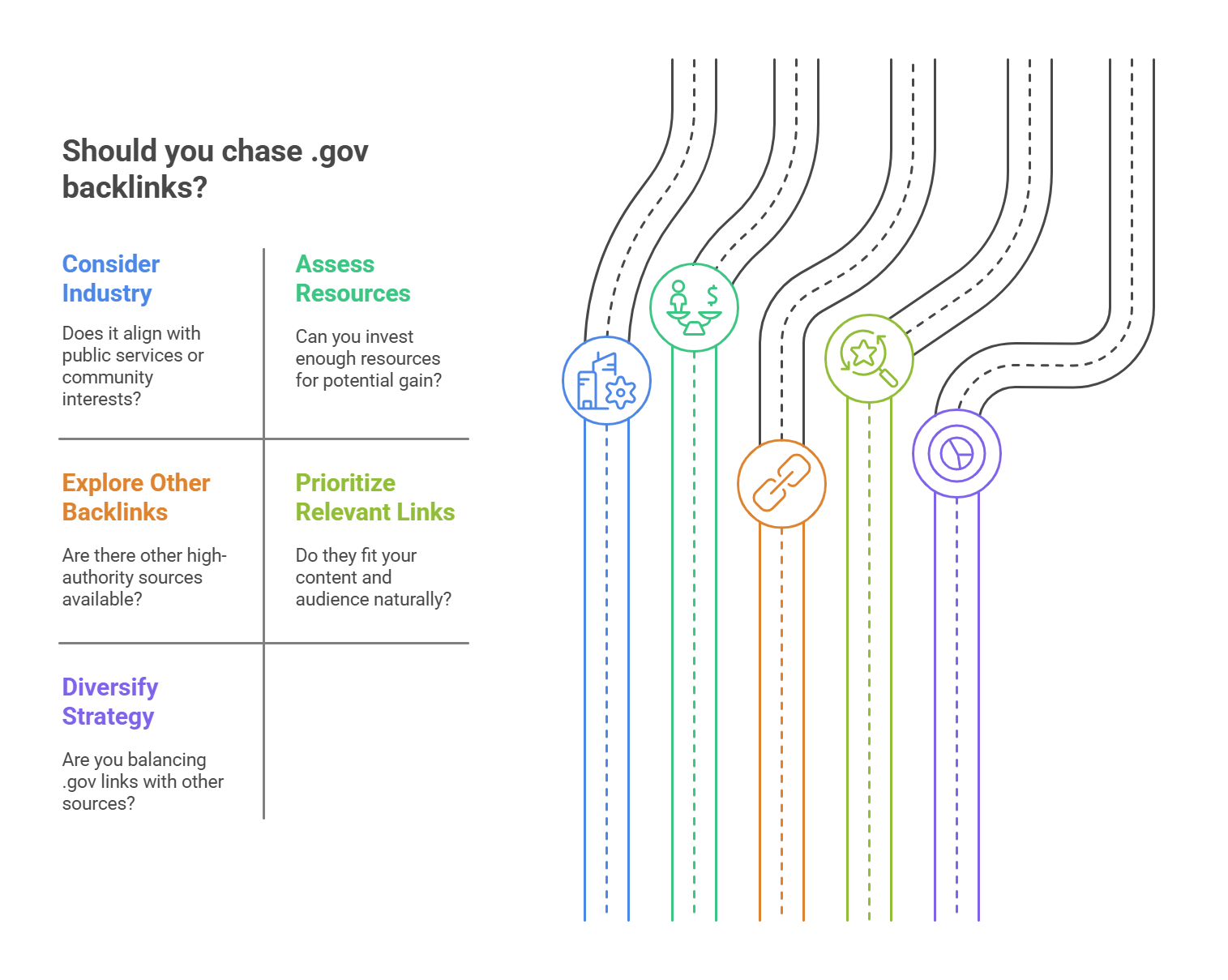
2. Assess Resource Investment vs. Potential Gain
I’ve already said it a few times in this post, and I’ll say it again: getting .gov backlinks is NOT easy. You need to research a lot, create original and super valuable content for your target .gov websites, and even make sure to comply with their guidelines.
But even that’s not enough. You also need to do relationship-building, both online and physically.
No, if you have a small business with limited resources, it might not make a lot of sense to try chasing .gov backlinks.
3. Try Other High-Authority Backlinks
If getting .gov backlinks isn’t realistic for your business, you can focus on other authoritative sources in your industry. Try chasing high-quality backlinks from reputable industry publications, respected blogs, educational institutions, and credible news outlets instead. These have much better chances of getting your solid backlinks.
4. Prioritize Relevant and Natural .Gov Links
Only chase .gov backlinks that naturally fit your content and target audience. Irrelevant links, even from authoritative government sites, won’t help your SEO and might even look spammy to search engines. Stay authentic and focus on adding genuine value for your audience and community.
5. Diversify Your Link-Building Strategy
Don’t put all your efforts into .gov links alone. They’re valuable, but you need a balanced backlink profile. Try to get authoritative backlinks from industry blogs, educational sites, reputable news outlets, and other trustworthy sources as well.
.Gov Links are Not for Everyone
.gov backlinks sure have great SEO value, but it shouldn’t be the only reason why you chase them. Make sure it is relevant to your business and for your target community.
And if you do chase .gov backlinks, here’s a little advice: be persistent because gov offices move slowly and polite follow-ups can increase your chances of landing that backlink.
Here are a few other ways to earn quality backlinks:
↳ Best link building strategies for ecommerce websites
↳ Guest posting vs niche edits, see what works best for you
↳ International link building strategies to get global backlinks
Frequently Asked Questions
Gov backlinks are links pointing from government-owned (.gov) websites to your site. They boost your SEO rankings significantly because search engines trust these authoritative sites. Google values these links highly due to strict credibility standards and rigorous content vetting by government entities.
Buying backlinks does not break laws, but it violates Google’s guidelines. Google can penalize your site by reducing rankings or removing it from search results entirely. Instead, focus on earning natural backlinks by creating valuable content and building genuine relationships.
Publish high-quality guest posts, create shareable content like original research or infographics, and actively pitch journalists on HARO or Qwoted. Engage communities on social media, participate in niche forums, and submit your site to reputable directories to rapidly build genuine backlinks.
Create outstanding content like detailed reports, original data, or comprehensive guides that authority sites want to reference. Build relationships through targeted outreach, guest blogging, and PR efforts. Consistently publish valuable resources to attract organic backlinks from reputable and high-authority websites.
The “.gov” domain indicates the website belongs to an official government organization, such as federal, state, or local entities. These sites carry authority and credibility, as government agencies strictly control and verify the accuracy of their content and resources.
.Gov backlinks provide exceptional value because search engines consider them highly authoritative and trustworthy. Government websites have strong domain authority, rigorous content standards, and strict approval processes. These links significantly enhance your website’s credibility, trust signals, and overall SEO performance.
No, not all .gov links have equal value. Links from major federal and state websites provide stronger SEO benefits than smaller local government sites. Prioritize relevant, authoritative government domains to ensure maximum impact on your rankings and site credibility.
Securing .gov backlinks typically takes weeks or months of persistent outreach. Establish relationships with government officials, regularly engage with community initiatives, and provide valuable resources consistently. Patience and proactive networking are crucial to successfully earning these authoritative backlinks.
